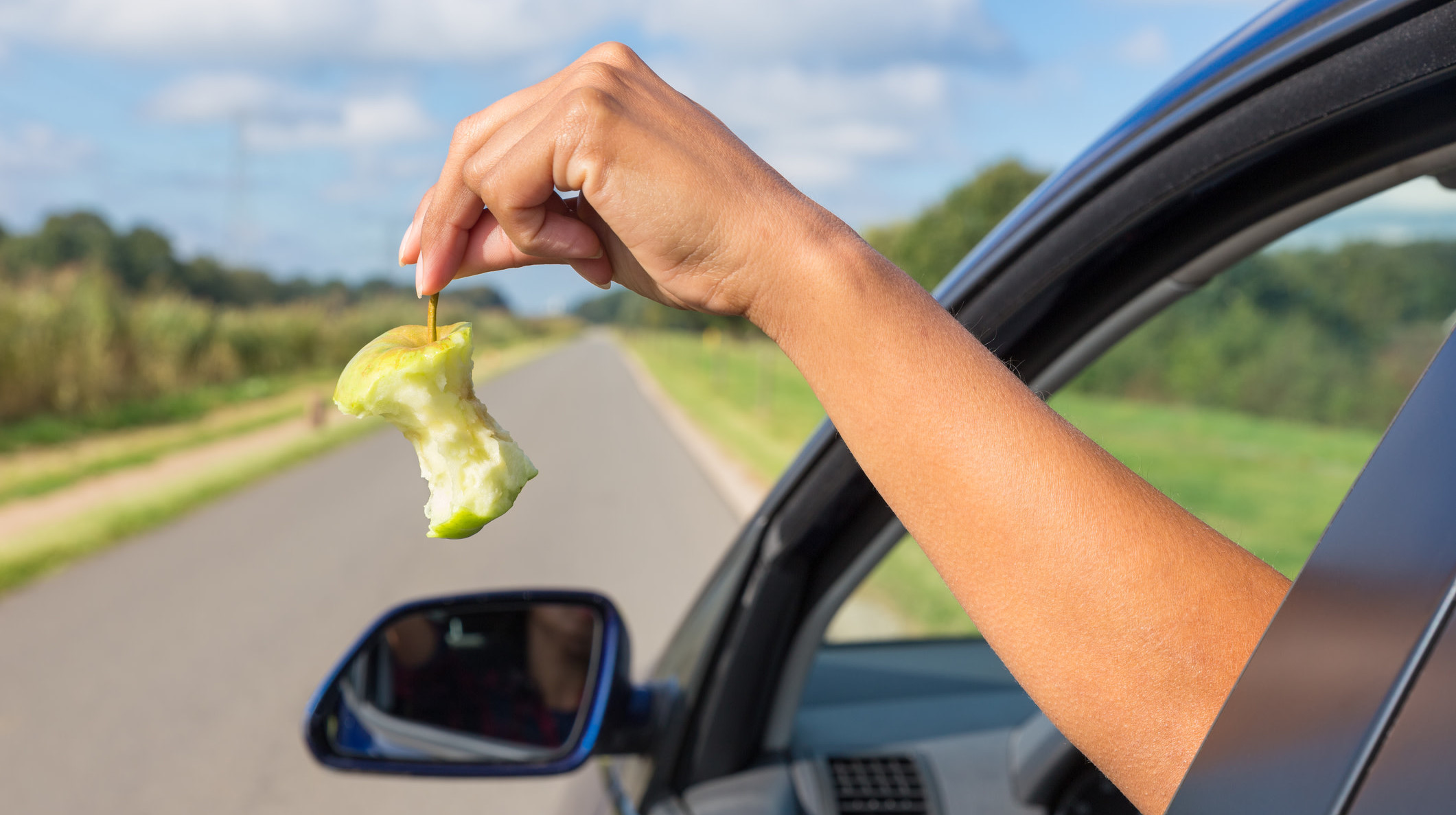Mother Nature Is Not The Trash Compactor We Think She Is
I've seen it plenty of times while hiking: a discarded apple core by the side of the trail, maybe an orange rind, or a pile of peanut shells. Other hikers clearly thought "Hey, food decomposes, right? I'll just leave this here instead of packing it out." Some might even think it's nice to leave a little snack for a squirrel.
Well, the National Park Service is here to do a little myth-busting. Specifically, a recent post from Glacier National Park has been making the Facebook rounds this week, reminding hikers and campers that nope, those foods might not decompose the way we assume they do.
Foods decompose quickly in compost bins because of the specific conditions under which air, moisture, heat, and different types of matter mingle inside. Those conditions aren't always present in the natural world, where our organic food matter can take years to break down. That apple core might actually linger in nature much longer than we assume.
During that time, those scraps are also animal attractants. While that might not seem like such a bad thing, Glacier National Park's post reminds us that where we throw food—near roads, for example—can lure animals away from their natural feeding areas, habituate them to eating human scraps, and thus make them more likely to be hit by a vehicle. Even if you're leaving a banana peel near a trail, the park warns, remember that bananas don't natural grow in that area, so animals aren't used to those foods and may have trouble digesting them. Fruit and vegetable seeds might also sprout, introducing invasive species to the area. (We've all seen that Simpsons episode, I hope.)
Thankfully, the tone of the park's Facebook post is encouraging, not shaming. Maybe you've spat sunflower-seed shells along a trail while hiking or left some peach pits at a campsite—but now you know that it's much better to pack it out with you. As always, knowledge is power.
